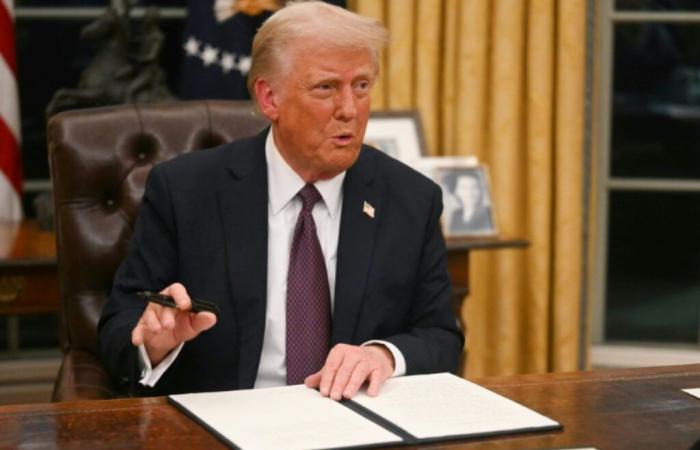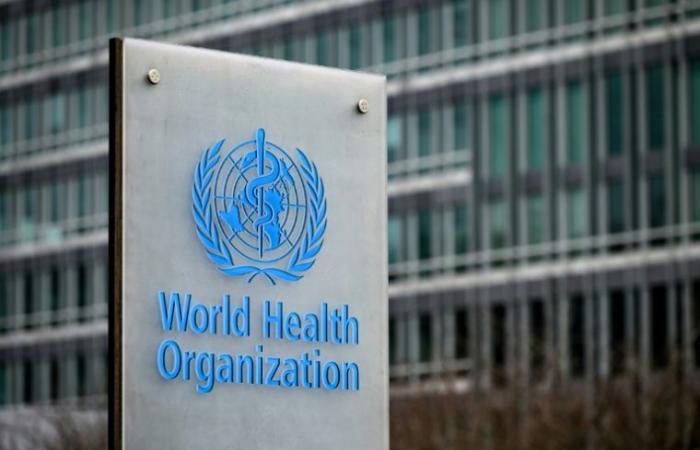US President Donald Trump signs an executive order to withdraw the United States from the World Health Organization (WHO) in the Oval Office of the White House, January 20, 2025 in Washington (POOL / Jim WATSON)
The World Health Organization (WHO) “regrets” American President Donald Trump's decision to withdraw the United States from the organization and hopes that he will reverse his decree signed Monday a few hours after his inauguration.
“The WHO defrauded us,” accused the Republican, signing this decree justifying this withdrawal by the gap in American and Chinese financial contributions.
In this text, he urges federal agencies to “suspend the future transfer of any funds, support or resources from the United States government to the WHO” and directs them to “identify credible American and international partners” capable of “assume activities previously undertaken by WHO”.
“We hope that the United States will review its position and engage in constructive dialogue for the sake of the health and well-being of millions of people around the world,” said a spokesperson for the organization. in Geneva, hoping for “a constructive dialogue” with the American authorities.
The United States, which had already taken steps to leave the WHO during Mr. Trump's first term in 2020, is the main donor and partner of this UN organization based in Geneva. According to the WHO, they contribute to its financing via a contribution indexed to their GDP, but also through voluntary contributions.
Their departure from the organization is expected to trigger a significant restructuring of the institution and could harm global public health efforts, including surveillance and outbreak control.
On Tuesday, Beijing assured that its support for the WHO would not weaken.
“The role of the WHO must be strengthened, not weakened,” underlined the spokesperson for Chinese diplomacy, Guo Jiakun, adding that “China, as it has always done, will support the WHO in the accomplishment of its missions.
In particular, WHO plays a central coordinating role during global health emergencies.
-– Risk of pandemic –
During his first term, Donald Trump had already tried to get the country out of this international organization which he accused of being “controlled by China”.
During his first term, Donald Trump had already tried to get the country out of the WHO, which he accused of being “controlled by China” (AFP / Fabrice COFFRINI)
His successor Joe Biden, however, canceled this withdrawal before it came into force, with the UN providing for a delay of one year between the announcement and the actual exit.
“The decision to leave (the WHO) weakens America's influence, increases the risk of a deadly pandemic and makes us all more vulnerable,” Tom Frieden, former senior health official under the administration of Barack Obama.
By withdrawing from the organization, the United States will lose privileged access to important epidemic surveillance data, several experts have warned, which could harm the surveillance and prevention capabilities of health threats coming from the stranger.
American health agencies and pharmaceutical companies also depend on the WHO “to obtain the data necessary for the development of vaccines and therapies,” notes Lawrence Gostin, professor of public health law at Georgetown University.
“Instead of being first in line to receive vaccines, we will be at the back of the line. WHO's withdrawal inflicts a deep wound on America's security and our competitive edge in innovation,” he said. -he regretted on X.
This withdrawal is all the more worrying as it comes at a time when the strong circulation of the avian flu virus in the United States is heightening fears of a next pandemic. The country recorded its first human death linked to the H5N1 virus in early January.







